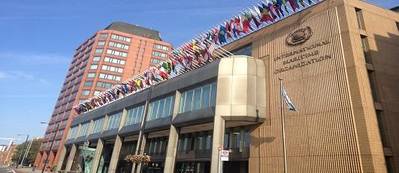IMO Takes Step Towards Electronic Certificates
In the future, the IMO member States should accept the use of electronic certificates. This is the request of the Facilitation Committee (FAL) and, hence, the road is paved for less paperwork, nuisance and delays for the shipping industry.
In the future, it must be easier to use electronic certificates. This was decided by the Facilitation Committee of United Nations’ International Maritime Organization (IMO) on Friday when it approved a set of updated guidelines on the use of electronic certificates.
”These new guidelines constitute a major leap forward for electronic certificates. Hereby, the IMO is sending a clear signal that port State control inspectors, vetting companies and other maritime players should accept the new e-certificates just as well as paper certificates”, says Director General of the Danish Maritime Authority Andreas Nordseth.
Danish presentation provided food for thought
For years, Denmark has been striving to bring the international regulations of the shipping industry into the 21st century, including to reduce the paperwork and barriers to electronic solutions in an otherwise ultramodern line of business.
Therefore, the Danish Maritime Authority had invited Mr. Thomas Mørk, Vice President of Marine Standards at DFDS A/S, to deliver a strong message to the IMO Facilitation Committee.
”It is about time that the maritime world changes from burdensome paper certificates to modern electronic certificates”, said Mr. Thomas Mørk.
His message was the conclusion of a pilot project where the Danish Maritime Authority and DFDS A/S have tested electronic certificates in practice. The project showed that there are savings to be gained both in terms of time and money, just as there are no major technical or legal barriers to getting started. Therefore, the task consists, first and foremost, in gaining international acceptance of the fact that electronic certificates are superior to paper certificates in all areas. It was evident that the presentation provided the many listeners with food for thought.
Now, FAL documentation can be sent electronically
The transition from paper to electronic solutions also progressed in another area at the meeting of the Facilitation Committee. After five years’ work modernising the FAL Convention, it was approved that flag and port State authorities should accept ships’ transmission of the so-called FAL documentation electronically – and thus the ships need not fill in paper forms. It is expected that the amendments of the FAL Convention will be adopted at the next session of the Facilitation Committee to be held in 2016, thereby reducing yet another major burden imposed on the shipping industry.













